At present, the main focus of Fish Biology and Fisheries Team is the use of the esclerochronological and geochemical (elements and stable isotopes) proprieties of otoliths to study the population structure, stock delineation, migratory patterns and habitats connectivity of fish. Additionally, we are developing shell stable isotope and trace element analysis methodologies for accurate age estimation of bivalve species vital for studies of population dynamics.
The team aims to integrate the work with complimentary data (e.g. genetics) providing a basis for fisheries conservation and management decisions. As well as trying to elucidate the biomineralization processes in marine and freshwater bivalves of commercial interest.
We are also working in the physiological and biochemical mechanisms involved in the adaptation of aquatic organisms (e.g. fishes and polychaeta) to environmental stressors (e.g. pharmaceutical pollutants) with the aim of developing several biomarkers (e.g. neurotoxicity, oxidative stress, lipid peroxidation and histological alterations).
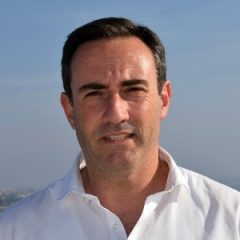
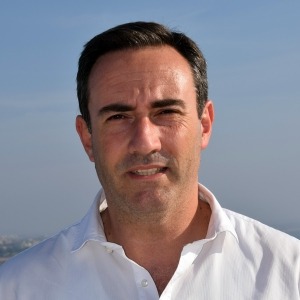
Alberto Teodorico Correia is Assistant Professor at Faculty of Health Sciences of the University Pessoa and Head Leader of the Ecophysiology team in CIIMAR. He is a biologist with a PhD degree in Aquatic Sciences from the University of Porto. He is vice-president of the European Society of Ichthyology and Invited Special Researcher at Federal University of Paraná in Brazil. He is author of around 50 scientific publications in international journals, made several communications in congresses and supervises several graduate and post-graduate students. He is considered a world expert in the use of the structural, morphological and chemical signatures of otoliths to study population structure, migration pattern and habitats connectivity in fishes. Her research interests also includes, more recently, the use of a biomarker approach to assess the effects of pharmaceuticals on fish and other aquatic organisms.
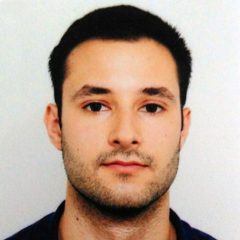
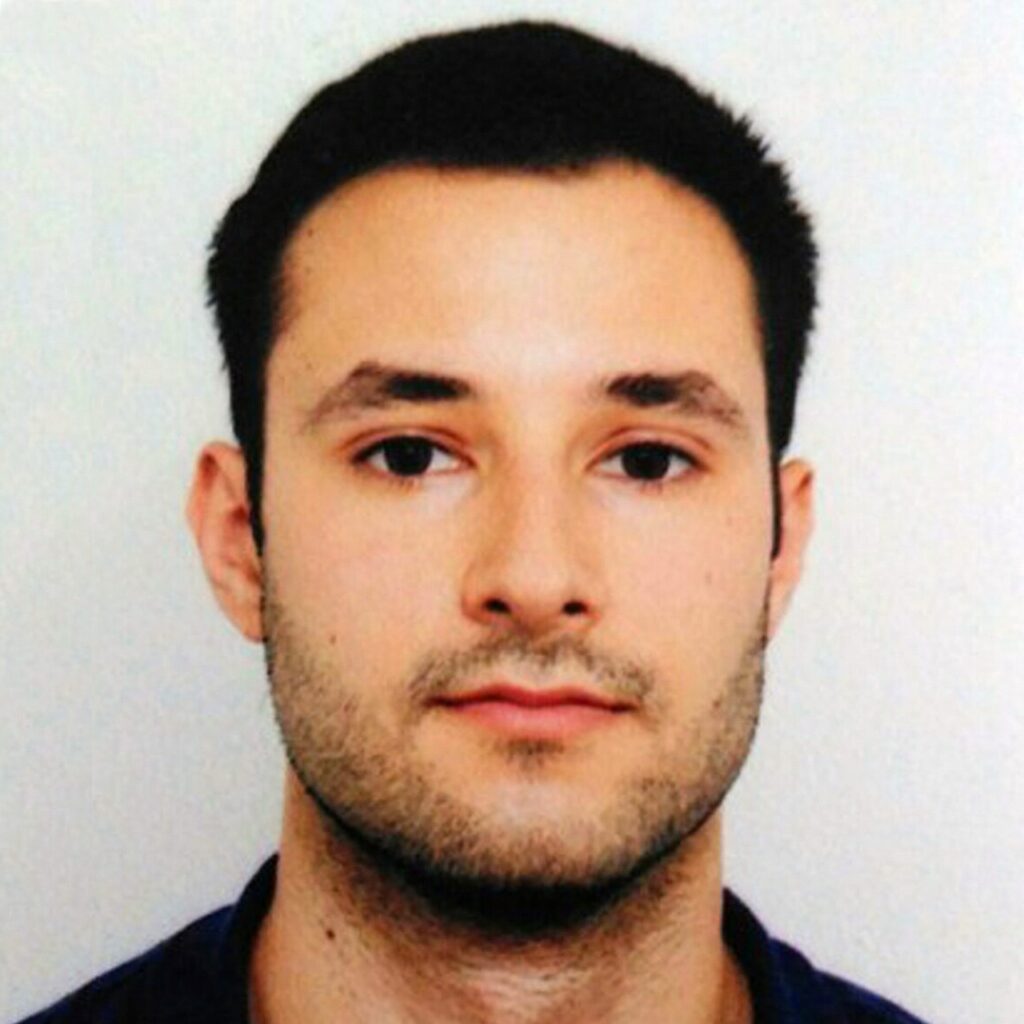
Currently completing my master's thesis in Pharmaceutical Sciences in Universidade Fernado Pessoa. Under the supervison of A.T. Correia, I developed an ecophysiological experimental research about the histopathological alterations of Scophthalmus maximus gills after a chronic exposure to Lead and Zinc.
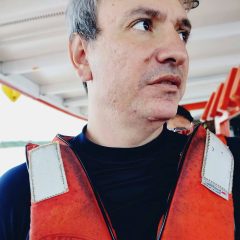
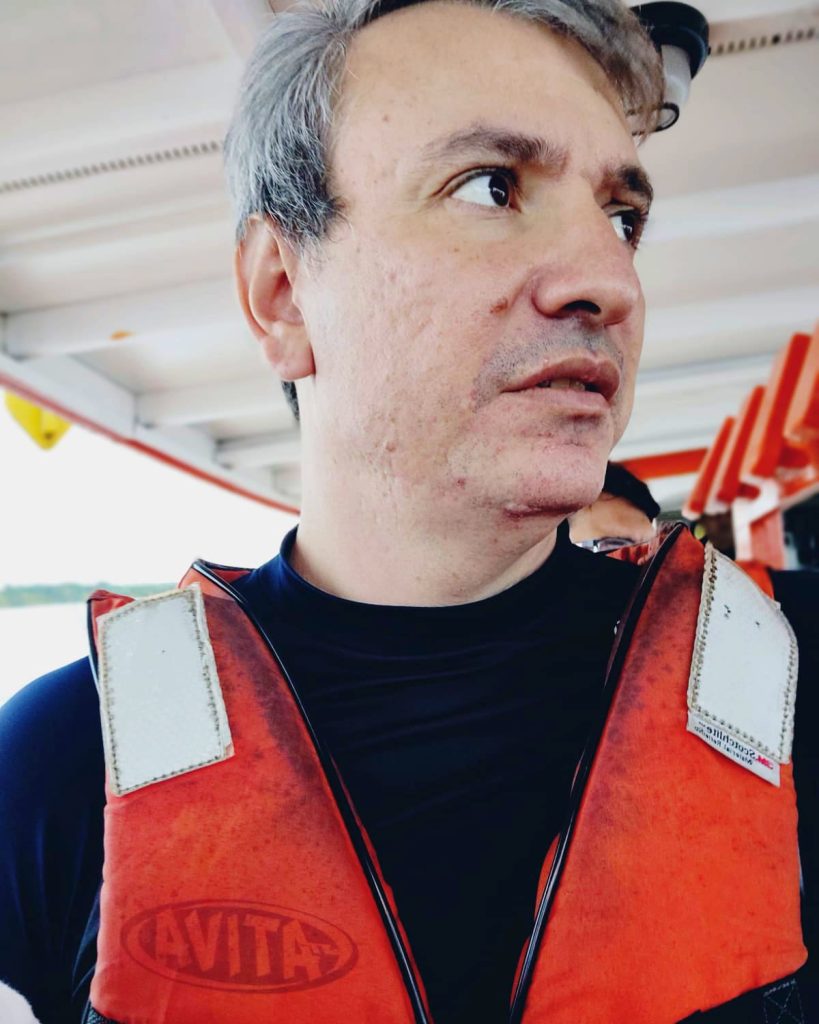
He holds a degree in Biological Sciences from Universidade Presbiteriana Mackenzie (2009) and a master’s degree in Oceanography, with an emphasis on Biological Oceanography, from the University of São Paulo (2013). Currently pursuing a Ph.D. in Biological Oceanography at the University of São Paulo. Worked as a Technical Assistant in the Santos Basin Beach Monitoring Project (PMP-BS), managing the team and the logistics of daily monitoring. Has experience in marine biology, biological oceanography, and ecology, focusing on fish ecology and otolith studies.
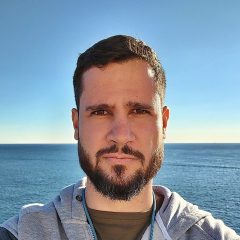
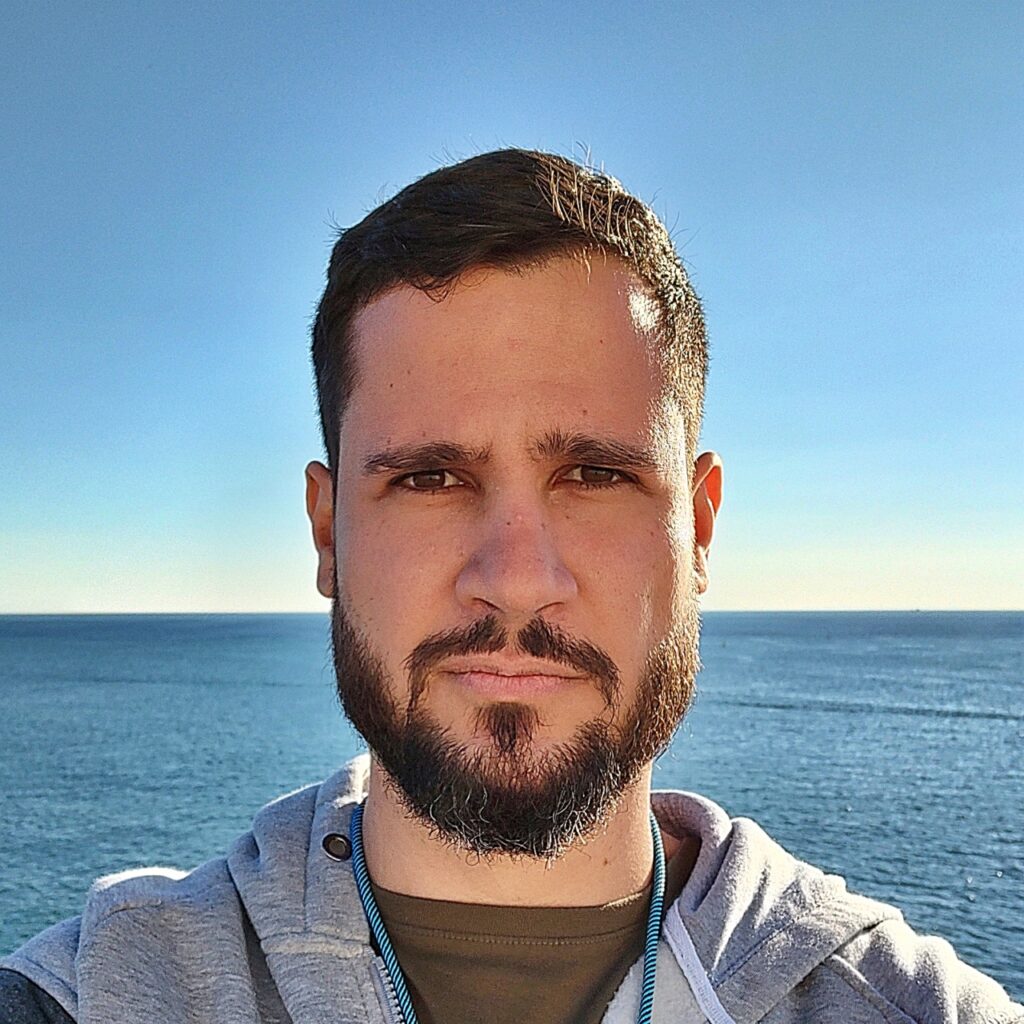
Fernando is from Campina Grande-PB, Brazil and holds a degree in Biological Sciences by the State University of Paraíba. Got his master degree from PPGEC/UEPB, investigating the morphological variability of sagittal otoliths of Atherinella brasiliensis between a positive and a hypersaline estuary. Currently, his PhD research is in progress at PPGEC/UEPB through an academic exchange, sponsored by CAPES/LEP-UEPB in collaboration with CIIMAR. His study analyzes the microchemical profiles of Centropomus undecimalis and Lutjanus jocu otoliths, in estuarine lagoons from Paraíba coastline, which will help delimiting nursery areas and their contribution to the fish stocks in that region.

Gaspar Lobo is a biologist from FCUP (2014) with a master’s in Marine Sciences – Marine Resources from ICBAS-UP (2016). With 7 years of experience in the rodent facility and kennel at ICBAS, he has extensive expertise in animal experimentation and welfare. A senior technician at ICBAS, he is currently part of the Aquatic Production and Experimental Surgery departments. He has been a member of ORBEA ICBAS since 2023.
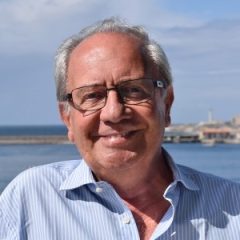
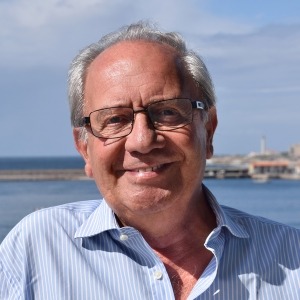
Emeritus Professor of the University of Porto. BSc in Biology (University of Coimbra) and PhD (Physiology of Aquatic Animals) at the University of Nice (France). Full Professor at ICBAS (Institute of Biomedical Sciences Abel Salazar), Founding Director of CIIMAR and CIMAR – Associate Laboratory. Former Vice-President of OCEANO XXI. National Delegate of European Framework Programmes (1994-2013). Scientific Interests focus on the biological basis of aquaculture, and ecophysiology of aquatic animals including the effects of pressure. Author or co-author of approximately 80 articles in international publications. Supervisor and co-supervisor of PhD students and post-docs. Management of many national and international research projects.
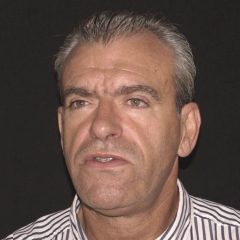
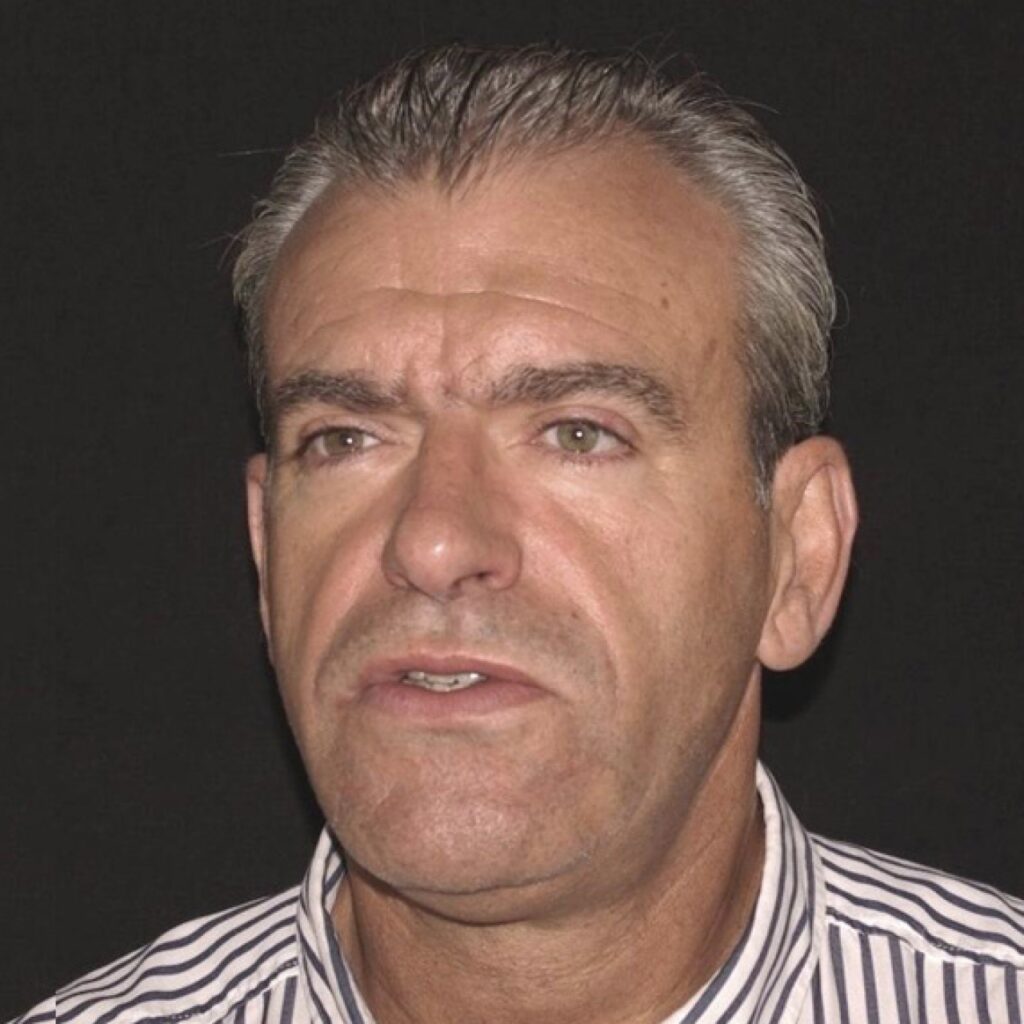
Researcher at CIIMAR-UP. Assistant Professor in ICBAS-UP since 2001. Responsible for the courses of Engineering and Handling in Aquaculture and Water and Effluent Treatment (BSc) and Animal Production and Aquatic Production and Aquaculture Systems in the Master’s Degrees of Veterinary Medicine and Marine Sciences. Main scientific area of research: Aquaculture engineering, aquaculture technologies, industrial engineering and logistics management, layout optimization, production of new species. Participation as team member in research projects (International, National, Regional) since 1985 (>10 projects). Authored > 40 articles and book chapters and > 70 presentation in congresses. Since 1987 is responsible for programs of technical assistance, training, design, and modernization of several industrial aquaculture projects supported by EEC and National funds.
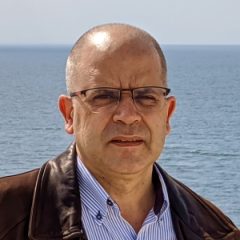
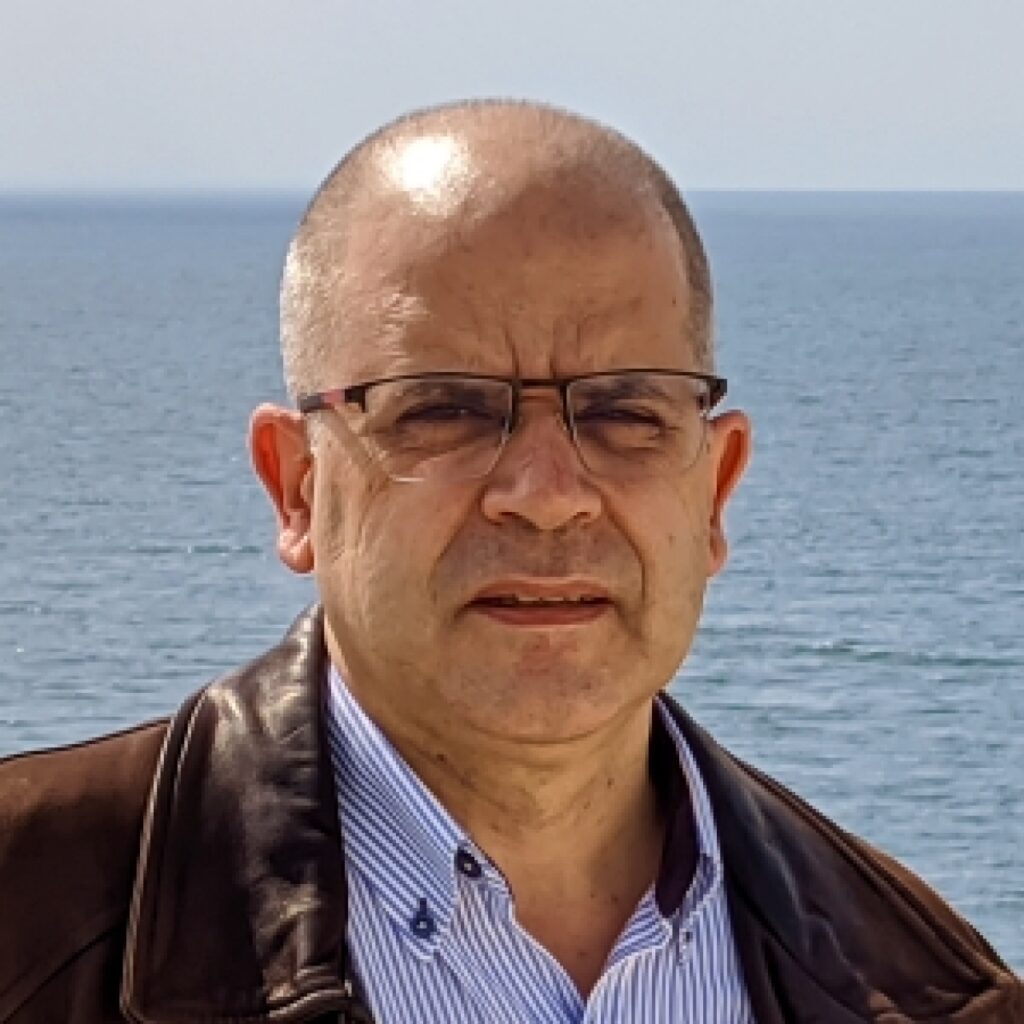
José Manuel Cabeda graduated in Biochemistry from the Sciences Faculty of Oporto University in 1988 and obtained his PhD in Biomedical sciences from ICBAS-Oporto University in 1996. His research focuses on Molecular Epidemiology of infectious and genetic diseases and molecular diagnostics of infectious and genetic diseases. He has published 44 papers in International peer reviewed journals, 6 book chapters in International published books and 2 books published in Portugal. He is a Coordinating Professor at Escola Superior de Saúde Fernando Pessoa and an IRCA certified ISO 9001 quality auditor.
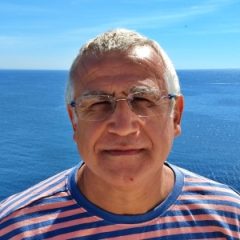
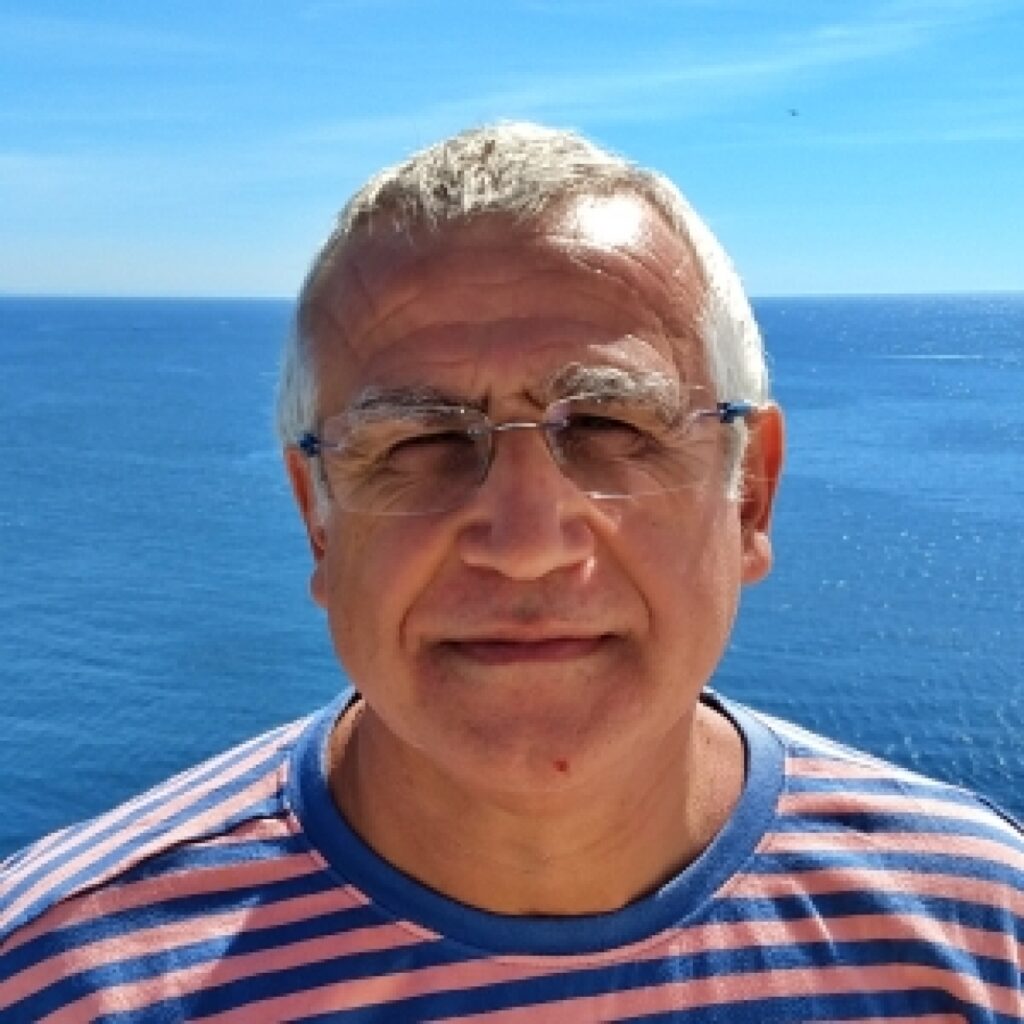
José Manuel Neves is associate professor at Faculty of Health Sciences of the Fernando Pessoa University (Porto). He graduated in Biology/Geology in 1986 (UAçores, Portugal) and completed his PhD degree in Biology in 2001 (UAçores, Portugal). His main research interests focus in ecotoxicology, ethnobotany and ethnopharmacology.
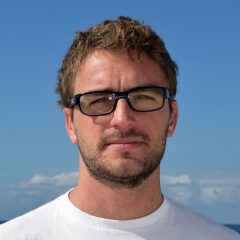
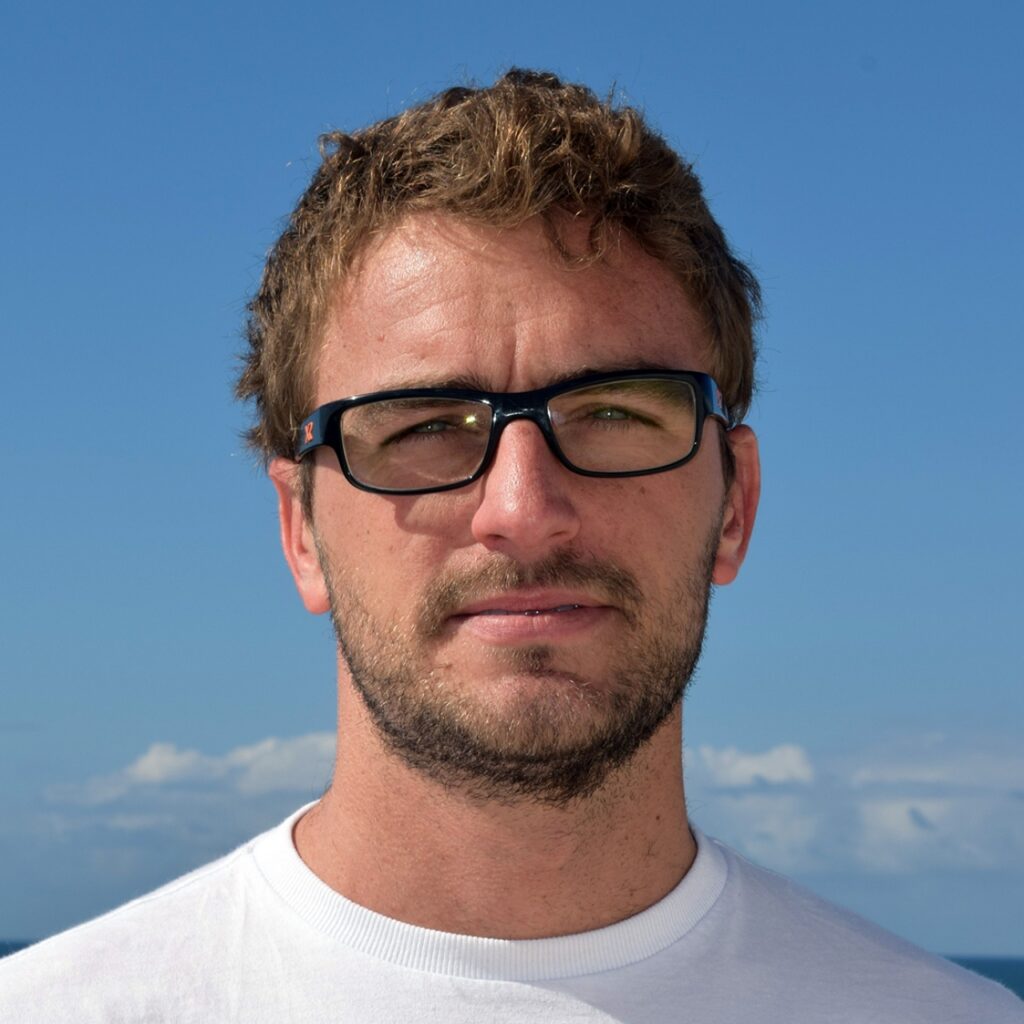
Graduated in Marine Biology from the University of Joinville, Santa Catarina, Brazil (2010). Master degree in Biology and Ecology of Coastal Systems from the Federal University of Paraná, Brazil (2013). Currently is also a PhD student in Coastal and Oceanic Systems at the Federal University of Paraná, Brazil. The PhD thesis proposal will use several tools (including microchemistry of otoliths) to track several life-history traits of the Atlantic spadefish needed for stock assessment in the southwest Atlantic ocean.
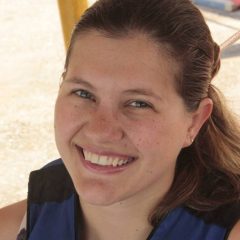
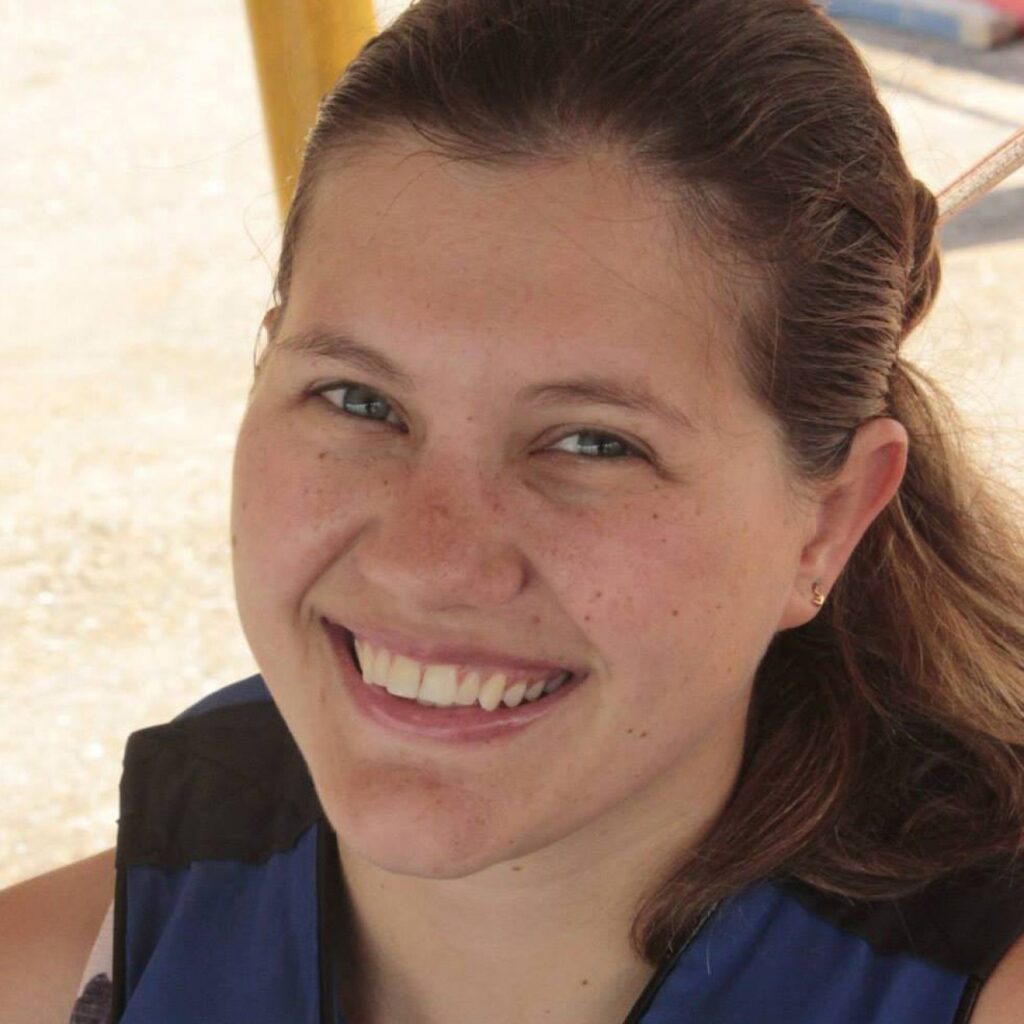
Oceanographer, PhD student in Oceanography (Biological Oceanography) at Oceanographic Institute of University of São Paulo, Brazil. Main scientific interests: Marine Protected Areas, ichthyofauna, demersal community, marine inorganic chemistry, index of biotic integrity.
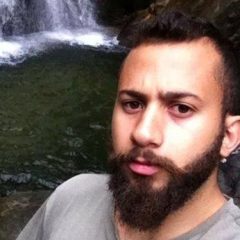
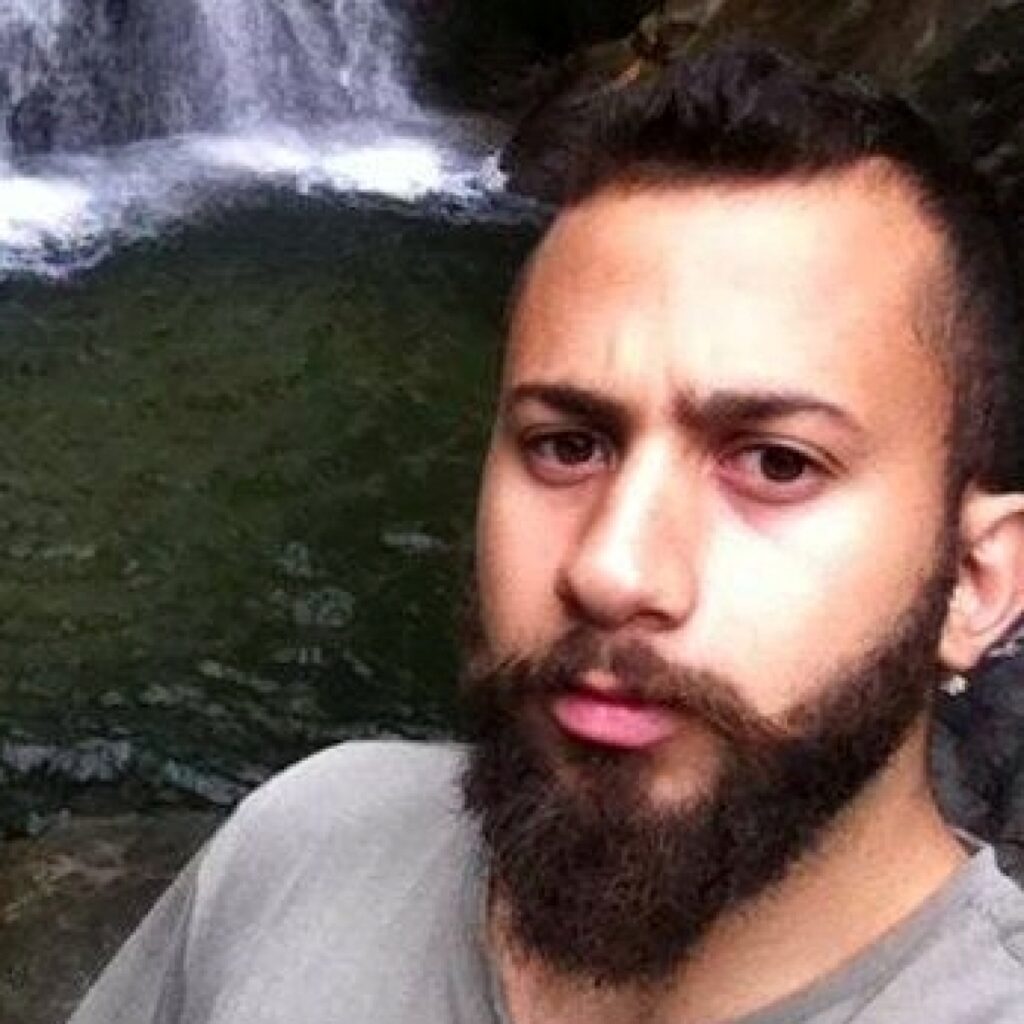
Bachelor of Biological Sciences with emphasis on environment, from Universidade Federal Fluminense (2016), Master in Marine Biology and Coastal Environments from Universidade Federal Fluminense (2019). At time is studying a doctorate degree in the Postgraduate Program in Marine Biology and Coastal Environments – UFF. Has experience in marine biology, where he works with a focus on the study of marine and coastal fish, using otoliths as natural markers in order to estimate population parameters of species of ecological and economic importance, as well as to describe patterns of environmental conditions.
de Almeida, P.R.C., da Costa, M.R., de Oliveira, R.S.C, Almeida, A., Azevedo, R., Monteiro-Neto, C., Correia, A.T.
2023Fisheries Research: 267, 106795.Franco, T.P., Vilasboa, A., Araújo, F.G., Gama, J.M., Correia, A.T.
2023Biology: 12(3), 360.Ferreira, I, Daros, F.A., Moreira, C., Feijó, D., Rocha, A., Mendez-Vicente, A, Castro, J.P., Correia, A.T.
2023Fishes: 8, 383.Nzioka, A., Cancio, I., de Cerio, O.D., Pinto, E., Almeida, A., Correia, A.T.
2023Marine Environmental Research: 189, 106075Schroeder, R., Schwingel, P.R., Schwarz, R., Daros, F.A., Franco, T.P., Hoff, N.T., Méndez, A., Castro, J.P., Vaz-dos-Santos, A.M., Correia, A.T.
2023Fisheries Research: 267, 106825Schroeder, R., Avigliano, E., Volpedo, A.V., Fortunato, R.C., Barrulas, P., Daros, F.A., Schwingel, P.R., Dias, M.C., Correia, A.T.
2023Estuarine, Coastal and Shelf Science: 288, 108368.Website by: Glitz Design